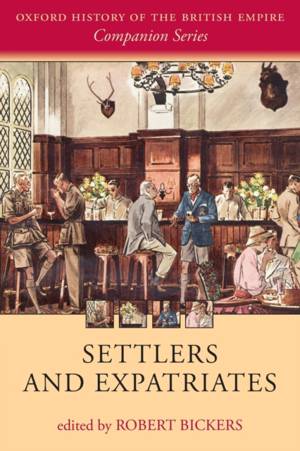
- Retrait gratuit dans votre magasin Club
- 7.000.000 titres dans notre catalogue
- Payer en toute sécurité
- Toujours un magasin près de chez vous
- Retrait gratuit dans votre magasin Club
- 7.000.0000 titres dans notre catalogue
- Payer en toute sécurité
- Toujours un magasin près de chez vous
Description
The British Empire gave rise to various new forms of British identity in the colonial world outside the Dominions. In cities and colonies, and in sovereign states subject to more informal pressures such as Argentina or China, communities of Britons developed identities inflected by local ambitions and pressures. As a result they often found themselves at loggerheads with their diplomatic or colonial office minders, especially in the era of decolonisation. The impact of empire on metropolitan British identity is increasingly well documented; the evolution of dominions' nationalisms is likewise well known; but the new species of Britishness which attained their fullest form in the mid-twentieth century have received significantly less attention. Settlers and Expatriates revisits the communities formed by these hundreds of thousands of Britons, as well as the passages home taken by some, and assesses their development, character, and legacy today. Scholars with established expertise in the history of each region explore the communalities that can be found across British communities in South, East and Southeast Asia, Egypt, and East and Southern Africa, and highlight the particularities that were also distinctive features of each British experience. These overseas Britons were sojourners and settlers; some survived in post-independent states, others were swept out quickly and moved on or back to an often uninterested metropolitan Britain. They have often been caricatured and demonized, but understanding them is important for an understanding of the states in which they lived, whose politics were at times a crucial part of British history and the history of migration and settlement.
Spécifications
Parties prenantes
- Auteur(s) :
- Editeur:
Contenu
- Nombre de pages :
- 368
- Langue:
- Anglais
- Collection :
Caractéristiques
- EAN:
- 9780198703372
- Date de parution :
- 08-07-14
- Format:
- Livre broché
- Format numérique:
- Trade paperback (VS)
- Dimensions :
- 155 mm x 231 mm
- Poids :
- 498 g

Les avis
Nous publions uniquement les avis qui respectent les conditions requises. Consultez nos conditions pour les avis.






